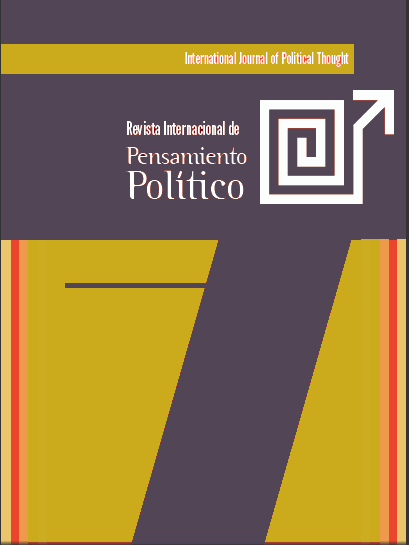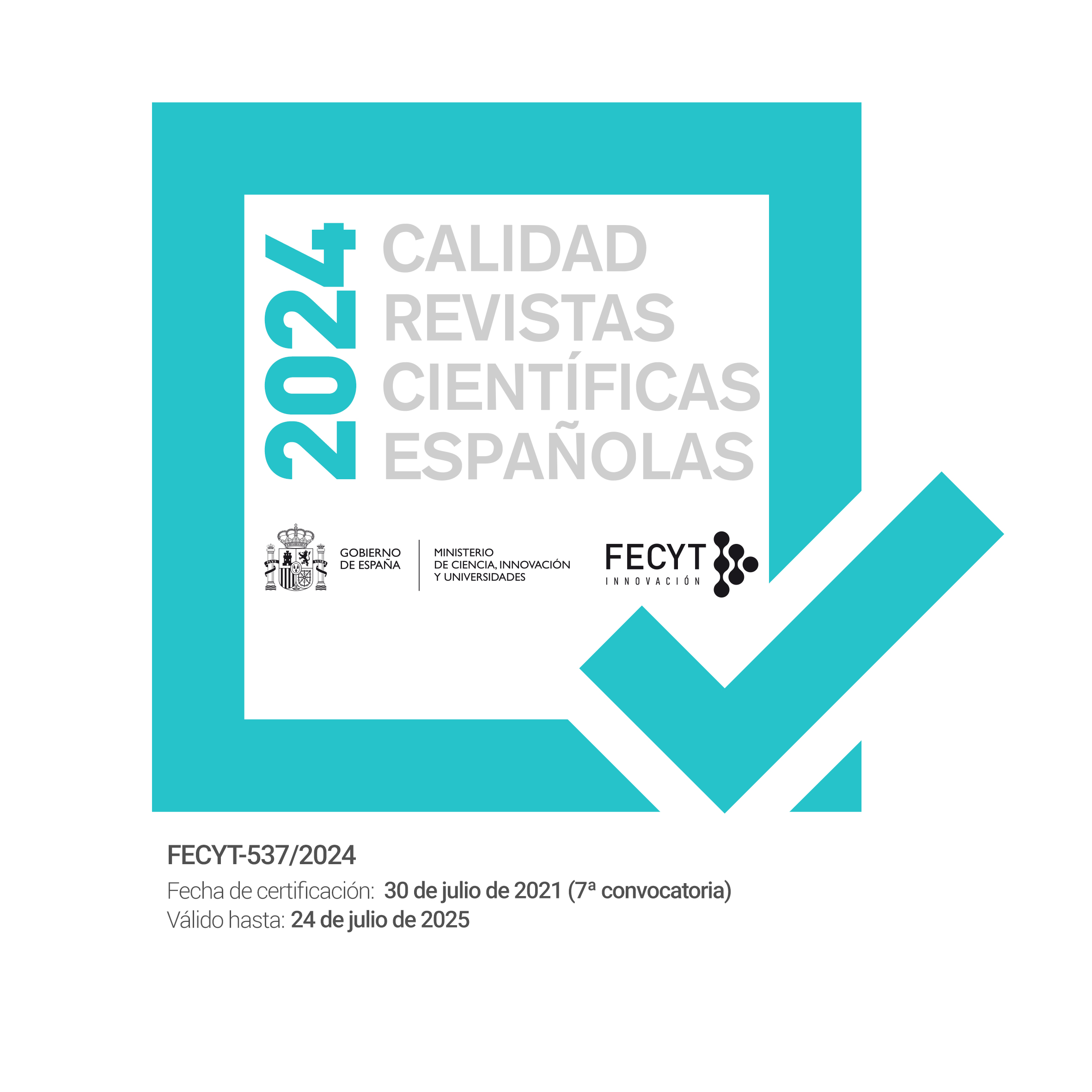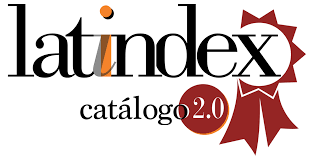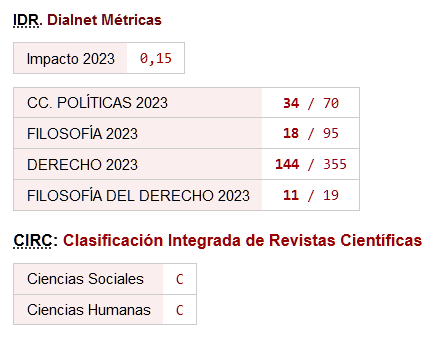What do we talk about when we talk about human rights? Notes on the purpose of a virtuous action
DOI:
https://doi.org/10.46661/revintpensampolit.10742Keywords:
Human Rights, Dignity, Virtue, Fragmentation, AristotleAbstract
The article begins by acknowledging the growing concern about the fragmentation of responses to the human rights crisis and the political and philosophical implications of their classification into generations of rights. It then proposes a comprehensive approach to human rights based on three aspects: dispositions, criteria, and sensitivities. This model, centered on human dignity, would make it possible to interpret and apply rights more effectively, considering both their universality and contextual circumstances. Although this proposal is subject to certain philosophical limitations, its focus on dignity would prevent the over-categorization of rights, while favoring their understanding and application in light of reflection on one's own existence, the normative aspects that guide it, and how we interpret these issues in view of justice and the common good.
Downloads
References
Aguilar, Carlos. (2023). “ ́El despertar de las máquinas ́. Reflexiones acerca de los derechos y el estatus moral de la inteli-gencia artificial”. Revista Internacional de Pensamiento Político, 18, 213-242. https://doi.org/10.46661/rev.int.pensampolit..8529
Andorno, Roberto. (2014). “human Dig-nity and human Rights.” En h. ten have y b. Gordijn (eds.), Handbook of Global Bioethics (pp. 45-58). New york / London: Springe. https://doi.org/10.1007/978-94-007-2512-6_66
Aristóteles. (1988). Política. (M. García Valdés, Trad.). Gredos
Aristóteles. (1994). Metafísica. (T. Calvo Martínez, Trad.). Gredos
Aristóteles. (1999). Retórica. (Q. Racionero, Trad.). Gredos
Aristóteles. (2011). Ética a Nicómaco. (J. Pallí Bonet, Trad.). Gredos
Bermúdez, Rodrigo (2022). Principio non bis in ídem en la jurisprudencia del Tribunal Constitucional. Asesoría Técnica Parlamentaria, Biblioteca del Congreso Nacional de Chile
Beuchot, Mauricio. (1999). “La fundamentación de los derechos humanos como dilema moral”, Persona y derecho: Revista de fundamentación de las Instituciones Jurídicas y de Derechos Humanos, 41, pp. 29-44. https://doi.org/10.15581/011.32147
Bonet de Viola, Ana María. (2016). “Consecuencias de la clasificación de los derechos humanos en generaciones en relación a la justiciabilidad de los derechos sociales”. Revista de la Facultad de Derecho y Ciencias Políticas, 46(124), pp. 17-32 http://dx.doi.org/10.18566/rfdcp.v46n124.a02
Cardoso, Mario, Loureiro, Paulo y Sachsida, Adolfo. (2003). “Criminality and Social Interaction.” IPEA Discussion Paper, 968. http://dx.doi.org/10.2139/ssrn.431867
Centro de Derechos Humanos UDP (2022). Informe anual sobre Derechos Humanos en Chile 2022. Universidad Diego Portales. https://doi.org/10.5354/0717-8883.2022.70406
Cicerón, (2016). De las leyes. (J. Pimentel Álvarez, Trad.). Universidad Nacional Autónoma de México
Comisión de Derechos Humanos, Nacionalidad y Ciudadanía (2021). Informe de la Comisión de Derechos Humanos, Nacionalidad y Ciudadanía recaído en el proyecto de ley, en primer trámite constitucional, que concede indulto general por razones humanitarias a las personas que indica y por los delitos que señala. https://www.camara.cl/
Dávila, Ximena y Maturana, Humberto, (2021). La revolución reflexiva. Una invitación a crear un futuro de colaboración. Paidós
Echeverría, Rafael. (2009). El observador y su mundo. Volumen 1. JC Sáez Editor
Echeverría, Rafael. (2014). Ontología del lenguaje. JC Sáez Editor
Francisco (2020). Encíclica Fratelli Tutti. Tipografía Vaticana
Gadamer, Hans-Georg. (1991). Verdad y Método I. Sígueme
Guterres, António (2020). La aspiración más elevada. Llamamiento a la acción en favor de los derechos humanos. Naciones Unidas
Hathaway, Oona, Crootof, Rebecca, “Which Law Governs During Armed Conflict? The Relationship Between International Humanitarian Law and Human Rights Law,” Minnesota Law Review, 96, pp. 1883-1994
Honneth, Axel (2011). La sociedad del desprecio. Trota
Instituto Nacional de Derechos Humanos (2019). Informe anual situación de los derechos humanos en Chile. INDH
https://www.indh.cl/informe-de-ddhh-en-el-contexto-de-la-crisis-social/
Kant, Immanuel. (2016). Fundamentación de la metafísica de las costumbres. Austral
Larii, Lurie y David, Mihail. (2019). “The influence of economic and socio-cultural factors on criminality.” Ştiinţe Socioumane, 19(1), 101-107
López-Alarcón, Nicolás. (2023). Interpretación y aplicación del principio “non bis in ídem” en la jurisprudencia chilena sobre infracciones cometidas en el mercado de valores [Tesis para optar al grado de Licenciado en Ciencias Jurídicas y Sociales]. Universidad de Chile, Chile. https://repositorio.uchile.cl/handle/2250/196174
Martínez, V. (2006). El Enfoque Comunitario. Estudio de sus modelos de base. Universidad de Chile
Maturana, Humberto, y Varela, Francisco (2002). El árbol del conocimiento. Las bases biológicas del entendimiento humano. Editorial Universitaria
Ministerio de Justicia (1963). No ha lugar a conmutación pena de muerte. Archivo Nacional.
Nussbaum, Martha. (1999). “Conversing with the Tradition: John Rawls and the History of Ethics,” Ethics, 109(2), 424-430. https://doi.org/10.1086/233901
Nussbaum, Martha. (2020). “The Capabilities Approach and the History of Philosophy.” En E. Chiappero-Martinetti, S. Osmani y M. Qizilbash (eds.), The Cambridge Handbook of the Capability Approach (pp13-39). Cambridge University Press. https://doi.org/10.1017/9781316335741.003
Oficina del Alto Comisionado de las Naciones Unidas para los Derechos Humanos (2021). Informe de seguimiento al “Informe sobre la misión a Chile del 20 de octubre al 22 de octubre de 2019”. ONU. https://acnudh.org/a-dos-anos-de-las-masivas-protestas-chile-debe-seguir-fortaleciendo-los-derechos-humanos/
O´Neill, William. (2021). Reimagining Human Rights. Religion and the Common Good. Georgetown University Press. https://doi.org/10.2307/j.ctv1d82h6p
Platón. (2022). La República o el Estado (P. Azcárate, Trad.). Austral
Risse, Mathias (2018). “Human Rights as Membership Rights in the World Society.” Carr Center Discussion Paper Series, (2018)6, pp. 1-15. https://doi.org/10.1017/9781108355704.002
Ríos-Patio, Gino. (2022). “Cuando la política no toma las cosas en serio”. Revista de la Facultad de Derecho y Ciencias Políticas, 52(136), 197-218. https://doi.org/10.18566/rfdcp.v52n136.a08
Rodríguez-Blanco, Verónica (2012). “Towards a Concept of Human Rights: Inside and Outside Genealogy.” Archives for Philosophy of Law and Social Philosophy, 98(3), pp. 346-359. https://doi.org/10.25162/arsp-2012-0026
Roshwald, Mordecai. (1959). “The Concept of Human Rights.” Philosophy and Phenomenological Research, 19(3), 354-379. https://doi.org/10.2307/2105226
Serrano-Tárraga, María Dolores. (2014). “Exclusión social y criminalidad”, Revista de Derecho UNED, 14, 587-618. https://doi.org/10.5944/rduned.14.2014.13312
Taylor, Charles. (1996). “Identidad y reconocimiento”. Revista Internacional de Filosofía Política, (7), 10-19
Watzlawick, Paul, Beavin Bavelas, Janet y Jackson, Donald. (2002). Teoría de la Comunicación Humana. Herder
Yunus, Nurrohim, Setiawan, Refly y Ngainnur, Siti. (2022). “Reposition of the universal declaration of human rights in the state legal system”. al Quistâs. Jurnal Hukum dan Politik, 13(2), pp. 65-77. https://doi.org/10.37035/alqisthas.v13i2.7304
Downloads
Published
How to Cite
Issue
Section
License
Copyright (c) 2024 Maximiliano Reyes Lobos

This work is licensed under a Creative Commons Attribution-NonCommercial-ShareAlike 4.0 International License.
Open access policy
Free and open access is allowed to any interested party to all the contents of the journal issues, free of charge, being able to print and transfer all the articles, with the only condition of specifying the source and authorship.
The journal: a) does not charge authorship costs for the processing of articles or for their submission, b) maintains copyright for authors without restrictions, c) facilitates authors to keep their publication rights without limitations.
The International Journal of Political Thought is an original work of the Laboratory of Political Ideas and Practices of the Pablo de Olavide University. All articles included in the Journal are original work of their respective authors. This Journal is freely offered to the scientific and academic community at no cost and releases the contents according to the license "Attribution-NonCommercial-ShareAlike 4.0 CC BY-NC-SA" of the Creative Commons project available in the following url: https://creativecommons.org/licenses/by-nc-sa/4.0/legalcode
If you wish to translate or compile any of the articles available here, please contact us at contacto













 ISSN: 1885-589X
ISSN: 1885-589X  Universidad Pablo de Olavide
Universidad Pablo de Olavide